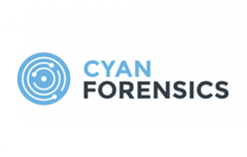Digital law enforcement specialist Cyan Forensics is urging Scotland to grow its footprint in the £1 billion ‘safety tech’ sector after closing its first sales in Europe and extending its core product range from crime detection into online safety.
“All of the same factors that have made Scotland a success in cyber security apply to online safety,” said Cyan Forensics chief executive Ian Stevenson. “We have a good academic base and are quite adept at understanding social as well as technical issues. We also have a strong entrepreneurial community.”
The Edinburgh-based tech company, which raised £1.5m funding in December, featured last month in a UK government report in May championing safety technology and predicting industry revenues in excess of £1 billion by 2025.
The report, Safer technology, safer users: The UK as a world leader in safety tech, also predicts the emergence of the sector’s first ‘unicorn’ – a company worth more than $1 billion.
In the last five years, the sector has doubled in size and investment and has increased more than eight-fold to a record 2019, with £51m raised across 19 deals. Other safety tech companies mentioned in the report include Dragonflai, which is based alongside Cyan Forensics in the technology incubator, Codebase, and Yoti, a London-based digital identity specialist that has a significant presence in Scotland through local government contracts.
“I hope the work that companies like Cyan Forensics, Dragonflai and Yoti are doing and the work nationally in the safety tech sector will help demonstrate to the world, to entrepreneurs and to investors just how big the opportunity in the sector is – and will encourage more people to come into it,” Mr Stevenson said.
He said Cyan Forensics had started its international sales effort by closing its first sales to law enforcement agencies in France and Germany.
In the UK, the company delivers its technology to law enforcement agencies, including regional police forces, through a significant contract with the Home Office. It also has a partnership in the United States with the National Centre for Missing and Exploited Children, which has helped law enforcement agencies recover more than 327,000 missing children since it was set up in 1984.
Cyan Forensics’ core product is a forensics thumb drive that law enforcement agencies plug into a computer when its user has been arrested on suspicion of downloading child abuse material or terrorist content. This allows officers to identify offending material within minutes – rather than the hours or days of traditional forensic techniques.
When the Covid-19 lockdown began – along with warnings about the increased threat of harmful online content during the pandemic – the company brought forward plans to extend its focus to blocking, as well as identifying, offending material.
“Our first set of products was all about helping police find evidence of offending on suspects’ computers,” Mr Stevenson said. “What we’ve done during lockdown is expand our focus on finding this material online and blocking it.
“This involves providing technology that allows social media or messaging or cloud service providers to stop child abuse material being shared on their platforms.”
The company’s new demonstrator products proved that it was possible to protect a user’s privacy and also block child abuse material – two things that were previously seen as being in conflict.
“We also have some new intellectual property around that,” Mr Stevenson added. “It’s a significant milestone for us, so we have used our time in lockdown well.”
In April, Cyan Forensics also led the launch of a new trade association for the sector, called the Online Safety Tech Industry Association (OSTIA).
The UK government’s Safer technology report says the sector comprises 70 firms across regional hubs in Edinburgh, Cambridge, Leeds and London, alongside academic and charitable organisations which have been fighting for a safer internet for years, such as the Internet Watch Foundation and the National Society for the Prevention of Cruelty to Children.
Cyan Forensics has 15 staff and expects to re-start recruitment for technical and sales roles after lockdown. Staff have continued working remotely, with none furloughed. The company was founded in 2016.
Source: The Herald

